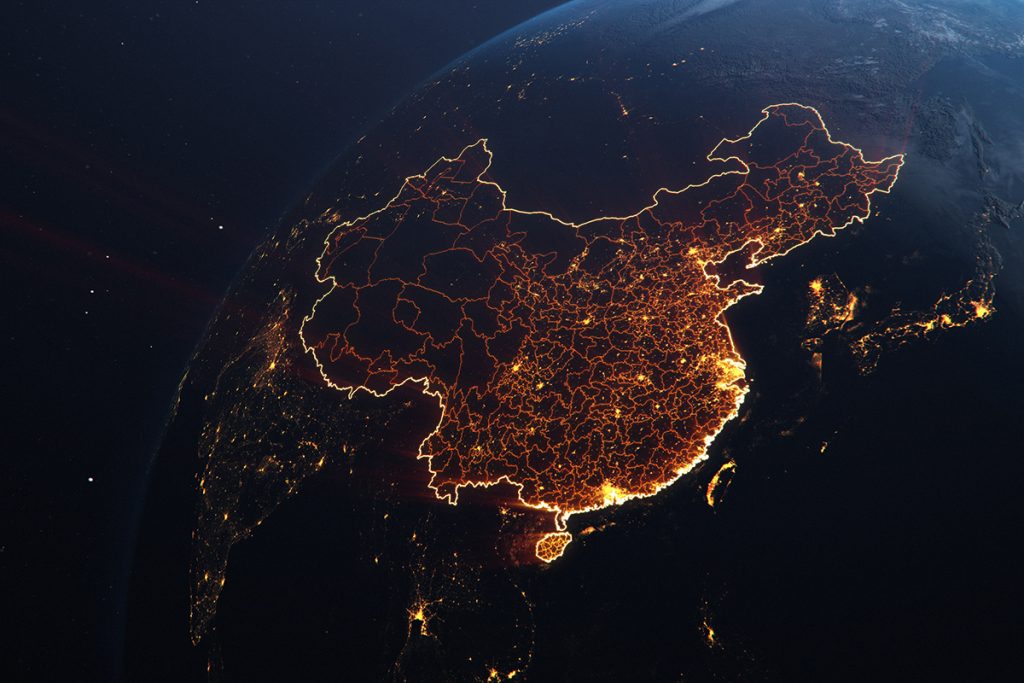We are recognised as authorities in our specialised fields. We publish newsletters with informed opinions that are free for you to subscribe to.
Business in China – what’s changed?
Shanghai Direct Supply Limited is an international trading company specialising in importing clothing and accessories, home textiles, and fabrics. The company was founded in New Zealand in 1991 by Nelson Lee, originally named Moving Free Trading. In the year 2000, Nelson’s son Kevin Lee joined his father, restructured the business, and it became Shanghai Direct Supply Ltd. Since then, they have worked together to create the best service possible. Kevin had always worked with China, so in 2004 he set up an office situated in one of Shanghai’s major economic development zones, which allowed them to have further control over production.

At present, Shanghai Direct Supply operates in both New Zealand and China, importing apparel, general merchandise, and providing quality control services for customers. They have also begun exporting food and dairy products such as oat milk and milk powder to China and distributing some of New Zealand’s major brands such as Plant Projects and Open Country Dairy.
Kevin normally travels back and forth between New Zealand and China every quarter, however, due to lockdowns in Shanghai, he has been stuck there since October 2021. So, Kathy Xiong who looks after Kevin’s financials decided to interview Kevin to see how business in China has changed since Covid.
Q1: Under the current circumstances, if a foreigner wants to make a business trip to China, what do they need to consider?
A: During 2020 – 2021, it was almost impossible for foreigners to apply for business travel in China unless they had two shots of the Chinese new crown vaccine and held an APEC travel card. It is only recently, that the Chinese government has relaxed its restrictions on business travel, and it is now possible to apply for a visa on business grounds as normal.
Q2: If a physical trip is difficult, can online replace the traditional trade model to a large extent?
A: During the epidemic, the way of trade was and is mainly through online communication and exchanges, such as email, Zoom, Microsoft meetings, etc. But I feel that face-to-face communication is still very important. In fact, the most important thing in trade is the communication between people, which is difficult to obtain online.
Q3: China has always been a big manufacturing country, has its manufacturing capacity been affected?
A: The whole world was affected by the epidemic, but China’s control of the epidemic allowed normal production and export, especially the export of anti-epidemic materials, which led to a substantial increase in China’s exports. However, as the epidemic situation in other countries stabilised, borders after travel and production returned to normal. China’s current strict epidemic prevention policies and quarantine measures for overseas business travelers (7 days in quarantine, and three days at home) have caused foreign customers to turn to Vietnam, India, the Philippines, and other Southeast Asian countries for production and procurement. It has been clearly felt in recent months, so it has been pessimistic about China’s foreign trade export growth this year.
Q4: You currently live in Shanghai, so do you think Shanghai has completely or mostly returned to normal after the lockdown?
A: During the two months of Shanghai’s lockdown, all employees of our company could not go out and leave the community, which caused great difficulties for the company’s operations. They could only work from home to maintain communication with customers, but the execution of orders, inspection of goods, and the transportation of the goods to the Shanghai port could not be carried out normally, which caused the delivery of the order to be delayed, and some customers claimed and caused losses. Generally speaking, most of the traders in Shanghai have had the same experience as us. Now Shanghai is gradually returning to normal, but business travel is still restricted, including domestic business travel, so it has not returned to the state it was originally was since the 2019 epidemic.
Q5: Has the Chinese Government introduced new policies to help foreigners who want to do business with China overcome the current difficulties?
A: The Government has issued some policies, but there isn’t a specific support policy for foreigners. Basically, it is aimed at reducing or deferring payments of some taxes and fees for enterprises. From the perspective of our company, it does not really help us alleviate the problems caused by the epidemic closures and controls. The only thing that can be considered as help, is that the Government provides convenience for Visa extensions for foreigners who have overstayed their Visas due to the closures and controls in Shanghai.
In conclusion, China is still facing difficulties because of the pandemic, however, Chinese businesses are still open to do business. If you need any help with connections, or how to navigate doing business with or in China, please feel free to get in touch.
If you don’t know where to begin, want to talk through something, or have a specific question but are not sure who to address it to, fill in the form, and we’ll get back to you within two working days.
Find out about our team
Look through our articles
Read more about our history
Business Advisory Services
Tax Specialist Services
Value Added Services
Get in touch with our team
Want to ask a question?
What are your opening hours?
AML & CFT Act in New Zealand
Events with Gilligan Sheppard
Accounting software options
Where are you located?
Events

